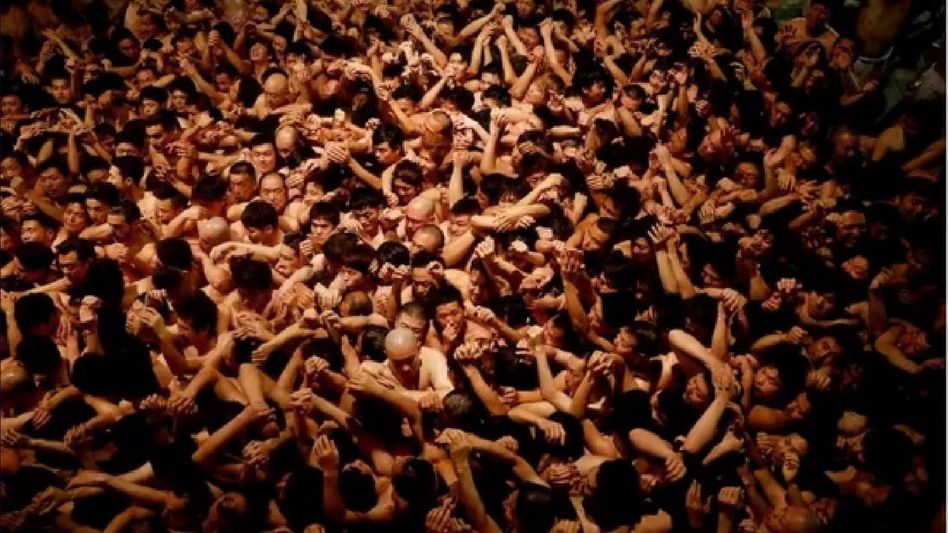Japan's age old "naked men" festival ends amid aging population.
Japan's ancient 'naked men' festival, popularly known as 'Sominsai', has concluded due to the challenges posed by the ageing population. The decision was taken as the organization of the event became increasingly difficult for the ageing community.
 Japan, Naked Men Festival, Sominsai, Ageing Population, Kokuseki Temple, Tradition, Cultural Event
Japan, Naked Men Festival, Sominsai, Ageing Population, Kokuseki Temple, Tradition, Cultural EventThe Kokuseki Temple in northern Japan's Iwate region bid farewell to the annual "Sominsai" festival which is a thousand year old ritual. The festival, known as one of Japan's quirkiest traditions, witnessed hundreds of naked men passionately chanting "jasso, joyasa" (meaning "evil, be gone") as they grappled over a bag of wooden talismans.
The decision to end the popular event stems from the challenges faced by the ageing local community in organizing the elaborate festival. The burden became too heavy for the faithful, impacting the ritual's sustainability.
The "Sominsai" festival drew hundreds of participants and attracted thousands of tourists annually. However, the ageing population crisis in Japan, particularly affecting rural communities, has taken its toll on traditions like this.
Daigo Fujinami, a resident monk at the Kokuseki Temple, acknowledged the difficulty of organizing such a large-scale festival. Despite the excitement and participation, there are numerous rituals and extensive work behind the scenes that have become increasingly challenging for the ageing community.
Japan's rapidly ageing society has led to the closure of numerous schools, shops, and services, particularly in small and rural areas. The Sominsai festival, which used to span from the seventh day of Lunar New Year through the following morning, had been scaled down during the Covid pandemic to prayer ceremonies and smaller rituals.
The final iteration of the festival, though shortened, drew the largest crowd in recent memory. Men in white loincloths bathed in a creek, marched around the temple grounds, and chanted "jasso joyasa" against the winter chill.
As the festival reached its climax, hundreds of men packed inside the wooden temple, aggressively jostling over a bag of talismans. Toshiaki Kikuchi, a local resident who helped organize the festival for years, expressed hope for the ritual's return in some form in the future.
"Even under a different format, I hope to maintain this tradition," said Kikuchi, emphasizing the unique experiences one can appreciate by participating.
Despite the sadness and understanding voiced by participants and visitors regarding the festival's end, changing demographics and social norms pose challenges for the continuation of such traditions. Other temples in Japan are adapting their rules to include women in previously male-only ceremonies.
Kokuseki Temple plans to replace the festival with prayer ceremonies and other spiritual practices from next year. The shifting landscape of Japan's demographics, marked by a falling birthrate and an ageing population, reflects the broader challenge of preserving age-old traditions in the face of societal transformations.
Copyright©2025 Living Media India Limited. For reprint rights: Syndications Today









